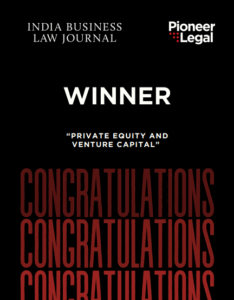INTRODUCTION
The Ministry of Corporate Affairs has been taking note of corporate compliances by companies and the same is evident from the steps taken by the Registrar of Companies (“RoC”) in the recent past. The RoC has been targeting the directors of defaulting companies under Section 164(2) of the Companies Act, 2013 (“CA 2013”). Section 164(2) pertains to disqualification of director of a company on the grounds inter alia of company’s failure to file financial statements or annual returns for a continuous period of 3 (three) financial years. Upon the disqualification under Section 164(2) of CA 2013, by virtue of Section 167(1), the office of such disqualified director becomes vacant in all the companies except for the fact that such director will continue to hold the office of director in the company which has defaulted under Section 164(2).
The disqualification of directors by RoC has been challenged before certain High Courts inter alia on the ground that failure by RoC to provide an opportunity to the director to be heard prior to his/her disqualification constitutes a violation of the principles of natural justice.
This point of contention has been dealt by the Madras High Court and the Delhi High Court in the matters of Bhagavan Das Dhananjaya Das versus Union of India (“Bhagavan Das”) and Mukut Pathak and Ors. versus Union of India and Ors. (“Mukut Pathak”) respectively. Interestingly, both courts have taken divergent views in respect of the aforesaid.
ANALYSIS OF THE RULINGS OF THE HIGH COURTS OF MADRAS AND DELHI
The Madras High Court, in the matter of Bhagavan Das, has ruled that RoC should provide an opportunity of hearing before disqualifying directors under Section 164(2)(a) of the CA 2013. In this case, several petitions were filed challenging the list of disqualification issued by RoC, Chennai on September 8, 2017. The petitioner contended that RoC, Chennai should have issued show cause notices before disqualifying the directors under Section 164(2)(a) of CA 2013. By not issuing show cause notices, RoC, Chennai denied opportunity to the accused of being heard before disqualification, which thereby violated principles of natural justice. The Madras High Court, agreeing with the contention of the petitioner, held that “Although there is no statute or provision expressly spelling out the observance of the principles of natural justice against disqualification of directors, as the legal right of the petitioners to continue as director in other company or to be reappointed in any other company, which are scrupulously following the provisions of the Companies Act, have been deprived of, the principles of natural justice should have been adhered to by issuing proper notice to all the directors.”
On the other hand, the Delhi High Court, in the matter of Mukut Pathak, has ruled that there is no decision making process which is required to be followed before disqualification of directors under Section 164(2) of CA 2013 and therefore, there is no requirement of observing the principle of audi alteram partem. The controversy in the Mukut Pathak matter emerged when the RoC, Delhi, on September 15, 2017 and October 3, 2017 published lists of disqualified directors under Section 164(2) of CA 2013 (“Impugned List”). The petitioners challenged the Impugned List on the ground that disqualification of directors has serious adverse implications and therefore, it was necessary for the RoC to afford an opportunity of hearing before taking any such action. The question before the Delhi High Court was whether an opportunity of being heard should have been afforded to the petitioners before including their names in the Impugned List and whether such Impugned List violated principles of natural justice.
The Delhi High Court held that Section 164(2) of CA 2013 merely lists down conditions, which if not complied with, would result in disqualification of a person from being appointed or reappointed as a director. Further, in view of Section 164(2) of CA 2013, the court added that “This provision does not entail any decision-making process on the part of the Authorities administering the Act. No authority is required to exercise any discretion or take any judicial or quasi-judicial decision regarding disqualification of a director. The Authority is also not required to pass any order disqualifying an individual. Clearly, in these circumstances, the rule of audi alteram partem would be inapplicable.”
Further,, the Allahabad High Court, in the matter of Jai Shankar Agrahari and Ors. versus Union of India and Ors., upheld the constitutional validity of Section 164(2) of CA 2013 and decided upon the applicability of principles of natural justice. The Allahabad High Court ruled that disqualification under Section 164 is automatic and by an operation of law. It does not require passing of order or declaration by any authority and therefore, principle of audi alteram partem will not be applicable to Section 164(2). The court held that “..there is no scope of doubt that as soon as disqualifications stated therein are incurred, Director concerned shall stand disqualified by operation of law and/or Office of Director shall become vacant by operation of law, under Section 164 and 167, respectively, as the case may be. Therefore, to attract the consequences, if eventuality which attracts disqualification or vacation of Office of Director has occurred, being automatic, it cannot be said that principles of natural justice are required to be applied at that stage and must be observed.”
CONCLUSION
From a plain reading of Section 164(2) of CA 2013, it is clear that the disqualification process is an automatic process and would not require a process of providing an opportunity of being heard to the director being disqualified.
While the Madras High Court ruling appears to widen the scope and powers of RoC by conferring quasi judicial functions on the RoC for disqualifying a director under Section 164(2), the Delhi High Court and Allahabad High Court, on the other hand, have approached this issue pragmatically and taking the strict interpretation while construing the provisions of Section 164(2)(a) of CA 2013.
Further, the ruling of Madras High Court is likely to result in opening a pandora’s box on interpretation of Section 164(2)(a) of CA 2013 since, there is no express statute which spells out the requirement of following the principles of natural justice before disqualifying a director under Section 164(2)(a) of CA 2013.
However, considering opposing views that the High Courts of Madras and Delhi have presented, the Ministry of Corporate Affairs should come out with a clarification on whether prior to disqualification under Section 164(2)(a) of CA 2013 a hearing should be afforded to the director being disqualified before his/her disqualification is deemed final.
Disclaimer: This article is meant for information purpose only and does not purport to be advice or opinion, legal or otherwise, whatsoever. Pioneer Legal does not intend to advertise its service through this article.












































